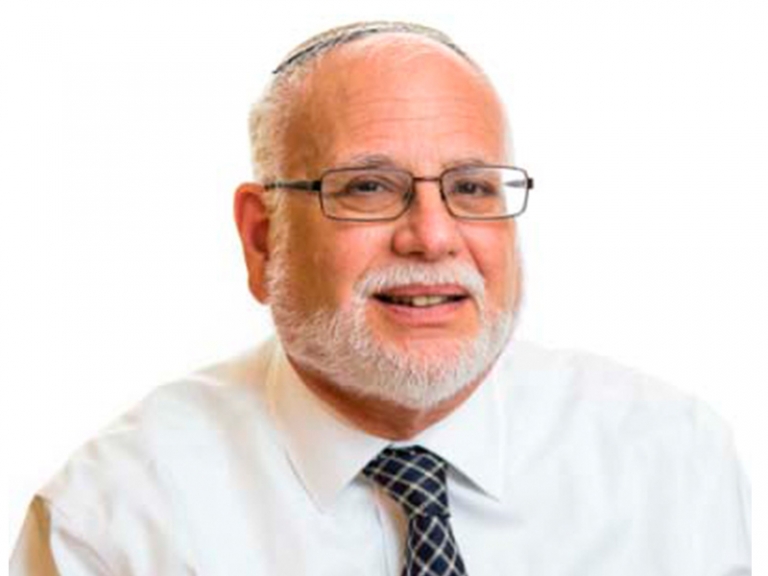D'var Torah by Dr. Kalman Stein, Interim Head of School

Dear Hebrew Academy Community:
If there were one line in the Talmud which most Jewish educators would love to remove it would be the all-too-well-known חייב איניש לבסומי בפוריא עד דלא ידע בין ארור המן לברוך מרדכי (Megillah 7b) which is usually translated as “One is required to drink, or to be intoxicated, on Purim to the point that one can no longer distinguish between ‘Cursed be Haman’ and ‘Blessed be Mordechai.’” Many important rabbinic figures through the centuries have ruled that this statement should not be taken literally. Some, for example, argue that a story in the Gemara about the negative impact of drinking on one particular Purim which follows immediately after this statement is meant to demonstrate that getting drunk on Purim is a terrible idea and that the previous statement should be ignored. Rambam states that one should drink enough wine at the Se’udah to become drowsy. (No one, by the way talks about drinking anything other than wine, not even fine single malt). Nevertheless, drinking, even excessive drinking, has regrettably become a Purim tradition in some sectors of the observant community.
The Netivot Shalom, The Slonimer Rebbe (1911-2000) offers a striking interpretation of the Gemara’s statement. He begins with a rather obvious question. Purim, he wrote, is an extremely important day: In rabbinic literature Purim is equated with Yom HaKipurim –in fact. some argue that Yom Kippur is K’Purim, like Purim, which would indicate that Yom Kippur is in some way a reflection of Purim. Purim, he explained, celebrates the Jewish People’s free and voluntary acceptance of the Torah which makes the day even more important than the day of the acceptance of Torah at Sinai in which there was a least a bit of coercion. It is on Purim that we engage in the Mitzvah of eradicating Amalek. It is a day on which we are advised to give Tsedaka, no questions asked, to anyone who stretches out his hand. All of these, argues the Netivot Shalom, require thoughtfulness and focus. How then would it make sense on this day of all days to become intoxicated to the point of confusion and mindlessness?
So, the Netivot Shalom, looking carefully at the wording of this statement writes that it doesn’t say חייב איניש לבסומי בחמרא בפוריא—that is, that one is one is to be intoxicated with wine on Purim, it states חייב איניש לבסומי בפוריא that one is one is to be intoxicated with Purim. It is the significance, holiness and message of the day which should intoxicate us, not alcohol. (I guess this is sort of analogous to drug counselors urging young people to be high on life, not high on drugs).
A beautiful message! But how do we reconcile that thought with the rest of the statement? How can one be intoxicated with the essence of Purim and at the same time not be able to distinguish between ‘Cursed be Haman’ and ‘Blessed be Mordechai,’ which pretty much summarize what Purim is all about?
The Netivot Shalom asks us to understand ארור המן and ברוך מרדכי as conceptual frameworks. Blessed be Mordechai is a shorthand for positivity, for inspiration, for a wholesome relationship between a human being and his God, his fellow humans, and him/herself. Cursed be Haman, on the other hand connotes negativity, pessimism, alienation and a breakdown in these important relationships upon which a healthy, God fearing life must be built. There are times in a person’s life which are characterized by Baruch Mordechai, by a feeling of spiritual and material wellbeing which makes one feel close to God. But the human condition is such, that at times we all confront illness, financial woes, family problems and/or spiritual confusion and feel that we are living a life of Arrur Haman, as if we had been exiled from God’s court. As long as one feels close to God one is able to bear the burden and confront the challenges with which life confronts us. The message of Purim is that one should draw from the Simcha of the day, from the exaltation of Baruch Mordechai, to understand that there “is really no difference between the times when one feels close to Hashem and those times when one feels distanced and alienated” because we are always God’s children and to draw strength from that understanding to work one’s way back to spiritual and emotional wellbeing. After all, it was just after the lowest point of the Arrur Haman phase of the Megillah when Mordechai and the Jews of Shushan donned sackcloth and ashes that the light of Baruch Mordechai began to emerge.
Purim Samai’ach,
Dr. Kalman Stein
Interim Head of School

